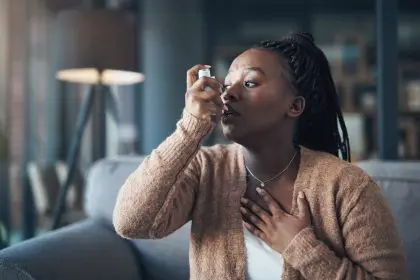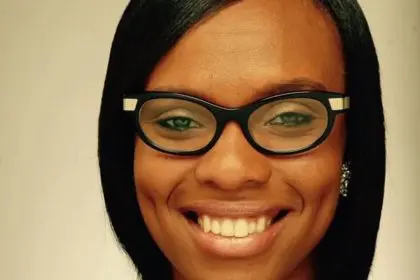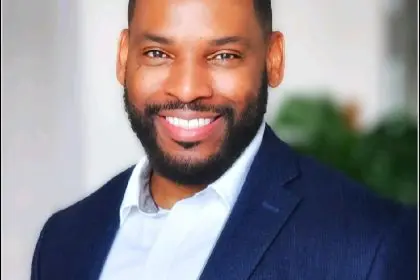In a world where health disparities continue to challenge African American communities, Sheila Williamson emerges as a beacon of hope and transformation. Williamson, DNP, CRNA, is a doctor of nursing practice and a certified registered nurse anesthetist at Henry Ford Hospital in Detroit, Michigan. She also serves as a clinical instructor at the University of Detroit Mercy, teaching undergraduate nursing students.
As the president of Making It Count, a nonprofit organization, Williamson supports underrepresented and marginalized populations. Through the innovative program, Tight 4 Life, she leverages trusted community figures like barbers and beauticians to promote holistic health. In this insightful interview with Munson Steed for rolling out’s Health IQ, Williamson discusses the impact of her work, the importance of culturally relevant health promotion, and her personal journey toward becoming a dedicated healthcare provider.
[Editor’s note: This is an extended transcription. Some errors may occur.]
Munson Steed: Hey, everybody! This is Munson Steed, and welcome to another edition of Health IQ. I am so proud today to bring you someone special. That is right, Dr. Williamson, who truly is a healer in our community, dedicated to creating a conversation throughout our community, leveraging those individuals who truly are the meaningful relationships and communications to our community, like beauticians and barbershops.
There’s a huge program called Tight 4 Life, which [was] created with and for her at Making It Count, where she’s president. But more than anything, she’s an activist who is [helping] those individuals struggling with addiction for that cigarette that we all want to put down, and vaping and any other tobacco-focused product. Welcome to Health IQ, Dr. Sheila Williamson. How are you?
Dr. Sheila Williamson: I’m well, thank you very much. That was a beautiful introduction. I want to meet that person.
Munson Steed: Who is she? Tight 4 Life, why Tight 4 Life? What do we need to know about Tight 4 Life?
Dr. Sheila Williamson: Tight 4 Life is an acronym that stands for a transformational intervention for holistic grassroots training. So what that means is that we’re kind of transforming the way that we bring health promotion to the community. We’re using those important members of the community to serve as community health workers. It’s very culturally relevant. Our beauty shops, barbershops, our beauticians, and our barbers are highly respected and trusted individuals in our community who are already, for the most part, addressing that holistic approach by helping a young lady feel good about herself when her hair is laid and when someone visits the barbershop, and he’s got that clean line that’s crispy. So, it really gives that boost to their self-esteem. So, we’re really addressing mental health already.
Tight 4 Life is an umbrella title of this movement. And right now, our focus is on tobacco dependence. But in the future, we’re going to encompass all chronic health diseases that affect the African American community the most. So, why not use these important figures in our community? Let’s face it, we don’t trust the doctor, but we sure trust our barber and our beautician. So, I thought that they would be excellent members to join our team and really bring this message and movement forward.
Munson Steed: And part of it is training. When you provide training for those barbers and beauticians, what should they know? And what are you training them to be able to do? And how are they able to tap in and have the resources to be able to share with those individuals truly trying to stop, in this particular case, smoking?
Dr. Sheila Williamson: We have a member on our team who is an addiction specialist. So, she conducts about eight hours of training, and in that training, it includes the benefits of quitting smoking and the harm of tobacco products. It’s really tobacco products because we know that not everyone that smokes uses tobacco products. We’re talking e-cigarettes, we’re talking marijuana wrapped in tobacco leaves, we’re talking more than just puffing on a cigarette. So, I really want to use the correct language so that the message is received.
So, she’s an addiction specialist, and she trains the barbers in having courageous conversations that address addiction and how should the barber and the beautician draw their clients in and want to find out about Tight 4 Life and all of the resources that we offer. And how they can make a difference in their clients’ lives as far as their journey to kick this particular addiction, which is nicotine and tobacco dependence.
Munson Steed: When you think of these barbers and beauticians who are truly making an effort, you have three. Can you share with us just the very role that they’ll play and how they can actually help? I know you have a QR code for those individuals who really want to tap in, and you’re leveraging technology to help them grow. Why technology? And how are you doing this for our community?
Dr. Sheila Williamson: I mean, technology. Whether we want to admit it or not, technology is here. AI is here. We’ve been using technology anytime you talk to Siri, anytime you talk to Alexa, we’re using technology, we’re using AI. So what we discovered is that what helps one be successful in their journey towards tobacco cessation is coaching, and we have an app that the barbers and beauticians are very well versed on how to use and operate. So, they instruct clients on how to sign up. It’s a free app from the Fred Hutchinson Cancer Center, and they track certain metrics like what would work for that particular client.
And then it offers specialized coaching, because we know that’s really one of the gaps in the literature, that there’s not enough follow-up and coaching. So, this is one way. The barber and the beautician themselves are coaches, because usually people come back and visit and have recurrent appointments, and that’s where the barbers and the beauticians can really make a difference with reinforcing the principles of tobacco cessation.
We do have a QR code that they’re instructing the clients to scan with their phone, and that gives us an opportunity to see where they are and see where their readiness is to quit. And then, we can connect them with appropriate resources, and we’re not taking our hands off of them. We’re not saying, “Hey, just go sign up for this,” and “Hey, go do that.” No, we’re Tight 4 Life. We’re tight. We’re going to keep it tight. We’re going to track them.
Munson Steed: Creating a wonderful community and sharing insights on how many people still don’t know the impacts of smoking when you start young. How important is it for people to know the harms of tobacco? And what are two or three [outcome of smoking] that people just don’t think about but it actually is something that impacts their health? Three years, two years later, they start to have and develop [symptoms].
Dr. Sheila Williamson: What we’re seeing is marketing that is targeting young folks. The adolescent brain. So, with e-cigarettes, that’s vaping. What people need to know is that…nicotine … causes [them to] lose impulse control, anxiety, mood swings, even some forms…of aggression. So, this is going to be a trickle-down effect for that young person. They begin to perform poorly in school. They could end up on medication, which opens up a whole nother myriad of problems, medicating such young people developing brains. So, of course, we know the damage [and] the risk for cancer and cardiovascular disease. It really affects every organ in the body.
Munson Steed: But those sisters—I’m glad that you obviously have beauticians doing outreach. But our sisters who smoke and obviously [have] issues as it relates to childbirth and how that impacts them—what is your messaging to women who need and don’t know, but this has an impact on them that they may not understand?
Dr. Sheila Williamson: Absolutely, it affects reproduction definitely. It makes it more difficult for them to become pregnant, and of course, smoking while pregnant causes great harm to the fetus. What happens is the nicotine causes the vessel where you have blood flow to be really, really narrow, and therefore your important vital organs are not getting that oxygenated blood that they need in order to thrive. It causes the blood vessels to constrict. That is why we have a problem with reproduction, cardiovascular disease, and things like that.
Munson Steed: In Tight 4 Life, you really have put together a formula. You’re using three brand ambassadors to do outreach and communicate. What are the key learnings and messaging that you want people to know about just having tight conversations about health in general, which obviously creates a much more aware community? What is that? ‘Cause It sounds like a wonderful program that will make a difference in the health mentality as we have conversations about health. Why are conversations about health important?
Dr. Sheila Williamson: Conversations about health. We really are able to pass on knowledge. Knowledge is power. And what we want our barbers and our beauticians to do is embolden the community so that they have the confidence to feel empowered so that they can live their healthiest lives. So, conversations lead to behavioral change. And when we exchange information, when we have trained ambassadors that can carry that message, well, then we can change behavior. Change is where we’re trying to go. We’re trying to transform the way we bring health promotion to the public, that’s Tight 4 Life.
Munson Steed: That is beautiful. And you, in your experience, why have you taken on being a health care provider for life? Literally, why be in the OR when you could be a beautician? You could be anywhere else. Why is it your dedicated effort to really heal our community? Why have you chosen this path?
Dr. Sheila Williamson: Well, first of all, I started as a beautician; my mother was a beautician. So, my mother owned her own salon at 19 years old, and I’m the youngest of ten children. So my mother, my oldest brother, is 82 years old. So, my mother came up during a time during the 40s when opportunities didn’t exist. She was able to be a professional and a business owner because of her skilled trade as a beautician. So, of course, my mother was my idol. So, what made me decide to go into healthcare was in my twenties. I lost both of my parents due to smoking-related illnesses. I felt helpless; I really did. I don’t like it.
My mother was like my best friend, and I lost her at 29 years old. So, I decided my mission in life was to be educated [and] help others to be educated so that they won’t feel lost in the healthcare system. [I felt] helpless because I didn’t know what to do to help my mother. I didn’t know how to navigate that space. So, it was my mission in life to make a difference, a meaningful difference, in the lives of those who live in my community.
Munson Steed: For young women trying to make career decisions, what would be three reasons you would share for them to join the healthcare industry as a Black woman and be a nurse?
Dr. Sheila Williamson: When we talk about diversity, equity, and inclusion, we need our patients to be able to see in us what they see in themselves. So if we really want to impact patient outcomes and community outcomes, then we have to get involved, and we have to be available. We have to study hard. We have to inform ourselves so that we can inform the public [and] have a healthier community overall. We have to be engaged.
And so, I would recommend healthcare in any form, not just nursing. Healthcare is a major problem. Access to healthcare is a major problem when we talk about marginalized populations [and] social determinants. If we want to have a healthier community, then we need us. Nobody is gonna help us. Nobody is coming for us. We have to help ourselves. And that’s why Tight 4 Life is so dear to me. Because I want my community to have the courage and the confidence to know that they can empower themselves and make a difference.
Munson Steed: I love that. And even with your study, you decided to get a Ph.D. Why?
Dr. Sheila Williamson: I mean, it says that I have a terminal degree is a Doctorate in Nursing Practice. And my trade is certified registered nurse anesthetist. So I am an advanced practice nurse with a terminal degree. That’s my education. I felt that I needed to understand the other side of healthcare. I was always in direct patient care, but I needed to understand research, and I needed to understand process improvement [and] quality improvement.
My doctorate degree in studying the overall practice of nursing allowed me to understand how I can truly develop programs that are really going to make a difference [and] that are really going to have a positive impact on my community. I love my community. I grew up in Detroit. Detroit is my home. I love the people of Detroit. Nobody has a vibe like the D, so it only made sense to me that I go ahead and complete my education [and] obtain that degree. There’s nowhere else. There’s nothing else. Now I just have to put my money where my mouth is and get to work. So that’s why I chose the terminal degree. Just to complete me.
Munson Steed: I love that. For all those young people who are going to decide to go to college, and obviously, you’ve done more than go to college. If you were given a speech on healing in our community at a commencement, whether it’s at Wayne State or Howard University or Spelman College, what would the title of your speech be to those young people as they were going forward into their lives? What would you challenge them to do in that speech as it relates to impacting their community and growing a tight relationship as they move through life in your commencement speech?
Dr. Sheila Williamson: The first thing I would say is to keep a certain type of people, surround yourself with people around you that are positive, that are supportive but are gonna tell you the truth because we don’t grow without the truth. Without growth, there’s death. So always seek more to know why. Get involved. There are places you can volunteer, your church, and community. Service is vital. We can’t get enough. We need people [who] are committed to the overall wellness of the community so that we can strengthen our community. That’s probably the message I would give at the beginning.
Munson Steed: Thank you for that. I really want to thank you for your time. I really think that Tight 4 Life is a dynamic healing movement. For all of you out there, be sure to check out Dr. Sheila Williamson and know that she is making a difference each and every day. If you know someone, we’ll drop the QR code here so that you can scan and join the Tight 4 Life movement. Dr. Sheila Williamson, thank you so much for coming on Health IQ here at rolling out.
Dr. Sheila Williamson: Thank you. Thank you for this opportunity. I appreciate you.
Munson Steed: Thank you.












